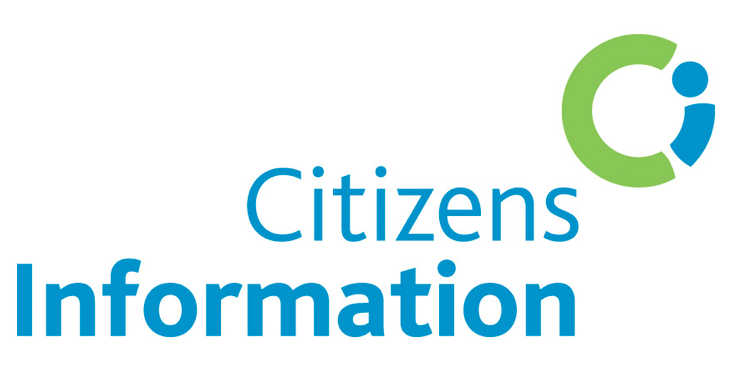
 Know Your Rights has been compiled by Kerry Citizens Information Service which provides a free and confidential service to the public…
Know Your Rights has been compiled by Kerry Citizens Information Service which provides a free and confidential service to the public…
What information and supports are available for older people from Citizens Information?
Ciara O’Gorman, Development Manager with South Munster Citizens Information Service confirms, “We provide information, advice and advocacy across a broad range of topics of interest to older people.
“We get a lot of queries in relation to State Pensions and the other secondary benefits such as Fuel Allowance, Free Travel and Household Benefits package. Other areas that we provide information would include the Nursing Home Support Scheme (Fair Deal), renewing driving licences, housing adaptation grants forms and much more.”
Fair Deal Scheme:
The scheme covers long-term nursing home care only. The Fair Deal covers accommodation and food, nursing and personal care, laundry service and basic aids and appliances needed to support you with everyday living.
Continued below…

Other goods and services may be available under schemes such as the medical card or Drugs Payment Scheme. The Fair Deal scheme does not cover short-term care such as respite, convalescent or day-care or extra fees charged by the nursing home for services like hairdressing, therapies or activities. There are 4 steps to the Fair Deal application process:
Step 1: Fill in the Nursing Home Support Scheme application form to apply for Fair Deal.
“On the form, there is a list of documents you need to send with your application form, including proof of your income and assets. After you gather all the documents, send the completed form and documents to your Local Nursing Homes Support Office. The HSE will let you know when they have received your application. When you submit the application form, you are applying for a care needs assessment and financial support.
If you need help with your application, contact your Local Nursing Homes Support Office or your local Citizens Information Centre.
The form should be completed and signed by the person applying for nursing home care. If they are unable to apply, a specified person can apply for them. A specified person is:
• Your decision-making representative (a person appointed by the Circuit Court)
• A person appointed under an enduring power of attorney who is not restricted from applying for the scheme
Your Committee, if you are a ward of court
• Your spouse or partner
• A child of yours who is 18 or over
• A registered medical practitioner, nurse or social worker.
Continued below…

If you had a care representative, they are now called a decision-making representative (DMR). They can still act on your behalf.”
Step 2: The Care Needs Assessment
Ciara explains; “The Care Needs Assessment will check if you can be supported to continue living at home or if long-term nursing home care is more appropriate. The HSE will contact you to complete the Care Needs Assessment. Healthcare professionals appointed by the HSE such as a public health nurse will carry out the assessment. The assessment may take place in a hospital or a community setting like your home and may involve a physical examination. What will be considered is:
• Your ability to do daily activities like bathing, shopping, dressing and moving around
• How you currently use any health and personal services such as a home-care assistant or nurse
• The family and community support available to you
• Your wishes and preferences.
It is possible you may be asked for more information to complete the Care Needs Assessment, such as a referral from your GP. You should provide this as soon as possible to complete your application.”
After carrying out the Care Needs Assessment, the healthcare professional writes a report. Based on the report, the HSE decides if long-term nursing home care is the best option for you. Once a decision is made, the HSE will write to you within 10 working days.
You will get a copy of the report and the reasons for the decision. You may wish to appeal a decision. When the HSE writes to you about the outcome of your Care Needs and Financial Assessments, it will outline the appeals process and give you details of your local Appeals Office.
Ciara cautions; “You must be assessed as needing nursing home care to be eligible for either State support or the Nursing Home Loan. If you do not qualify for long-term nursing home care, you generally must wait 6 months before you can apply again but it is worth remembering that if there is a change in your health or circumstances, you can apply before the 6-month waiting period ends.”
Step 3: Complete a Financial Assessment
The Financial Assessment works out how much you can pay towards your nursing home care. The HSE will pay the remaining balance of the weekly cost of your care.
For example, if the total weekly cost of your care is €1,000 and your weekly contribution is €300, the HSE will pay €700. This payment by the HSE is called State support.
The Financial Assessment looks at all of your income and assets. If you are part of a couple, the assessment will be based on half of your combined income and assets. A couple is either a married couple living together or an opposite or same-sex couple living together as life partners for at least three years. It does not include relatives who live together, or two adults living together but not as life partners.
Income and assets
Income includes any:
• Earnings
• Pension
• Social welfare benefits or allowances
• Income from holding an office or directorship
• Income from fees, commissions, dividends or interest
• Transferred income (any income you transferred to someone else within 5 years of your first application)
• Rental income from any properties which are not your home.
An asset is any material property or wealth, including property or wealth outside Ireland. Assets are divided into 2 categories, cash assets and non-cash assets.
Cash assets include savings and deposits, stocks, shares, securities and other financial instruments, approved retirement funds (value of fund at date of application), money loaned by you to another person and cash assets transferred to another person in the last 5 years.
Non-cash assets include your home (if you own or part-own it), any property or land you own, businesses, overseas land and property. In the case of assets, the net value of the asset is assessed. The net value is the value minus any borrowings for the purchase or improvement of the asset.
Deductions
You can subtract the following deductions from your financial assessment:
• Income tax, PAYE, Universal Social Charge and PRSI
• Levies you must pay by law such as property tax
• Interest on loans for the purchase, repair or improvement of your home (if you own it)
• Rental payments from renting your home (primary residence), while you are in nursing home care (details and application form below)
• Rental payments from your partner, your child, or your partners child (aged under 21) who live in your property
• Health expenses such as GP visits, prescription charges, medicines and medical expenses after tax refund, (not including contributions paid under Fair Deal)
• Maintenance payments for a child, spouse or former spouse made under a separation agreement or a court order
• A dependent child in full-time education.
• Any redress you received under a qualifying redress scheme
How much you pay towards your care
After assessing your income and assets, the Financial Assessment will work out how much you pay towards your care. You pay:
• 80% of your income (less the deductions above),
and
• 7.5% of the value of your assets per year
The first €36,000 of your assets, or €72,000 for a couple, are not counted in the Financial Assessment.
If you are part of a couple, you will contribute half of the amounts above, that is, 40% of your income and 3.75% of the value of your assets per year.
If your assets include land or property, the 7.5% contribution based on these assets may be deferred and paid to Revenue after your death. You can defer paying the 7.5% contribution by applying for an optional nursing home loan.
3-year cap
Some assets are only included in the financial assessment for the first 3 years you are in care.
This is known as the ‘3-year cap’. It means that you pay a 7.5% contribution based on the value of certain assets for up to 3 years. These assets can include your home, the proceeds of the sale of your home and/or your farm or business.
After 3 years, you will not give any further payment based on these assets, even if you are still getting long-term nursing home care.
The ‘3-year cap’ applies whether you choose to get the Nursing Home Loan or not. All other assets will be taken into account for as long as you are in care.
Couples and the ‘3-year cap’
If you are part of a couple, you will pay a 3.75% contribution based on your home for a maximum of 3 years. Your total contribution over the 3 years is capped at 11.25% of the property’s value.
If both partners are in care, the total contribution is capped at 22.5%. If you get the Nursing Home Loan for your home, your partner can also apply to have the repayment of the loan deferred for their lifetime.
Your home
Your home will be removed from your financial assessment after you have been in care for 3 years. You do not need to do anything. If you sell your home while you are in care, the net proceeds of sale will also qualify for the 3-year cap.
You need to contact your local nursing homes support scheme office if you sell your home. Family-owned farms and businesses can be included in the ‘3-year cap’ if they meet some conditions. For more information on this, please contact your local CIC.”
Step 4: Apply for a Nursing Home Loan (this step is optional)
The Nursing Home Loan is an optional element of the Fair Deal scheme. It is an option if the person in nursing home care has assets including land and property.
If you are approved for the Nursing Home Loan, the contribution based on your assets (land or property) can be postponed.
This means the HSE will pay the money to the nursing home for you, and it will be collected after your death or after the sale of all or part of your asset.
In certain circumstances, the payment may be deferred for a longer period, for example, if a spouse or partner or your former carer is still living in your home.
Repayment of the loan is made to the Revenue Commissioners. For more information on the Nursing Home Loan please contact your local CIC.
There is a lot of information here- so if someone would like more information what should they do?
“If someone would like more information about any of the issues covered they should give us a call” says Ciara. “We will discuss your circumstances with you and help you to make an informed decision. As always, our information, advice and advocacy service is free, impartial and confidential. We would be happy to assist you with your applications where necessary.”
• Deirdre Vann Bourke, Kerry Citizens Information Manager, said; For anyone needing information, advice or have an advocacy issue, you can call a member of the local Citizens Information team in Kerry on 0818 07 7860, they will be happy to assist and make an appointment if necessary. The offices are staffed from Monday to Friday from 10am to 4pm. Alternatively you can email on tralee@citinfo.ie or log on to www.citizensinformation.ie for further information.
